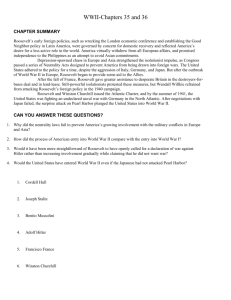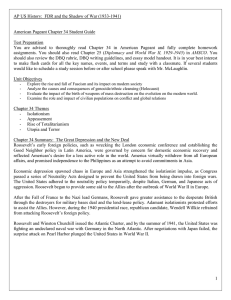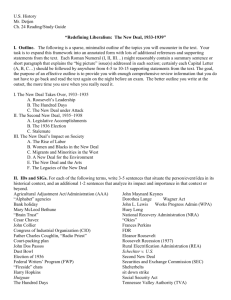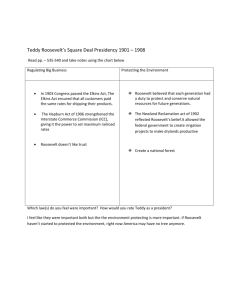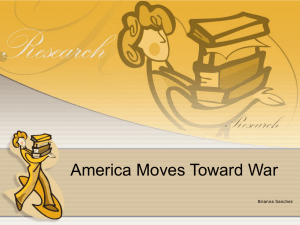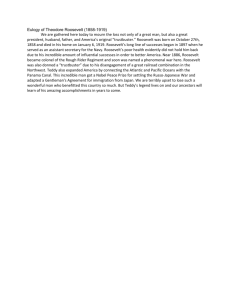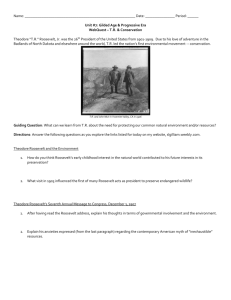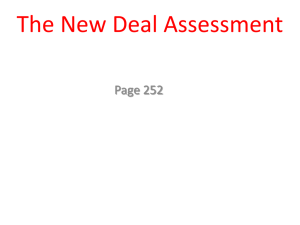Chapter 37: Franklin D Roosevelt and the Shadow of War (1933
advertisement
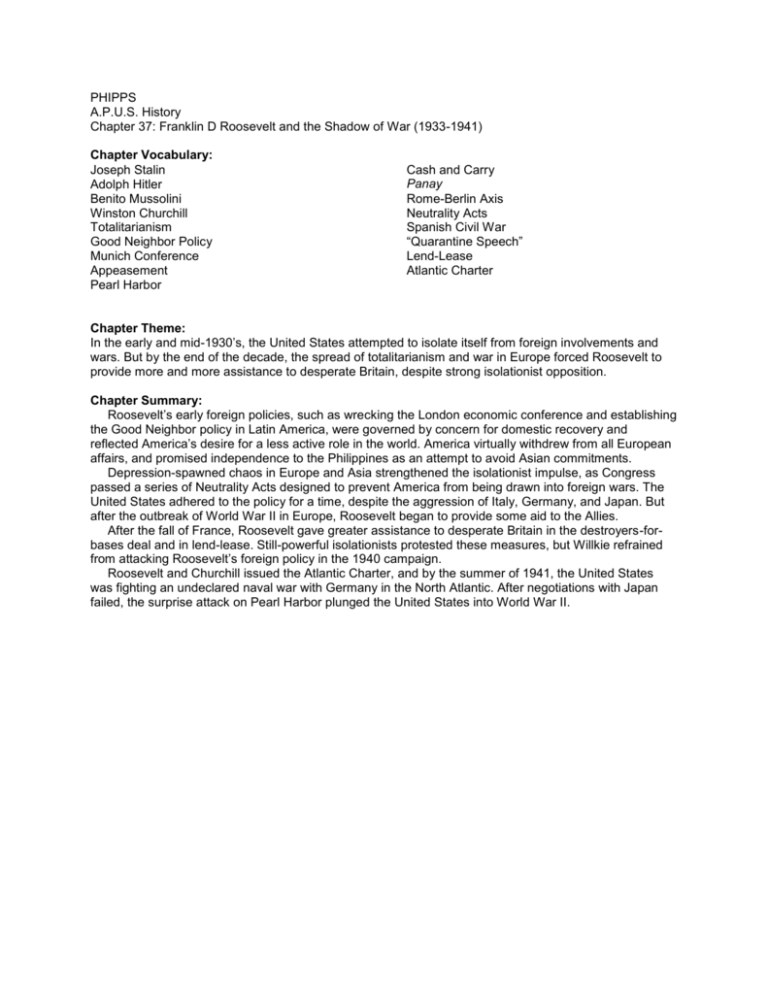
PHIPPS A.P.U.S. History Chapter 37: Franklin D Roosevelt and the Shadow of War (1933-1941) Chapter Vocabulary: Joseph Stalin Adolph Hitler Benito Mussolini Winston Churchill Totalitarianism Good Neighbor Policy Munich Conference Appeasement Pearl Harbor Cash and Carry Panay Rome-Berlin Axis Neutrality Acts Spanish Civil War “Quarantine Speech” Lend-Lease Atlantic Charter Chapter Theme: In the early and mid-1930’s, the United States attempted to isolate itself from foreign involvements and wars. But by the end of the decade, the spread of totalitarianism and war in Europe forced Roosevelt to provide more and more assistance to desperate Britain, despite strong isolationist opposition. Chapter Summary: Roosevelt’s early foreign policies, such as wrecking the London economic conference and establishing the Good Neighbor policy in Latin America, were governed by concern for domestic recovery and reflected America’s desire for a less active role in the world. America virtually withdrew from all European affairs, and promised independence to the Philippines as an attempt to avoid Asian commitments. Depression-spawned chaos in Europe and Asia strengthened the isolationist impulse, as Congress passed a series of Neutrality Acts designed to prevent America from being drawn into foreign wars. The United States adhered to the policy for a time, despite the aggression of Italy, Germany, and Japan. But after the outbreak of World War II in Europe, Roosevelt began to provide some aid to the Allies. After the fall of France, Roosevelt gave greater assistance to desperate Britain in the destroyers-forbases deal and in lend-lease. Still-powerful isolationists protested these measures, but Willkie refrained from attacking Roosevelt’s foreign policy in the 1940 campaign. Roosevelt and Churchill issued the Atlantic Charter, and by the summer of 1941, the United States was fighting an undeclared naval war with Germany in the North Atlantic. After negotiations with Japan failed, the surprise attack on Pearl Harbor plunged the United States into World War II.
